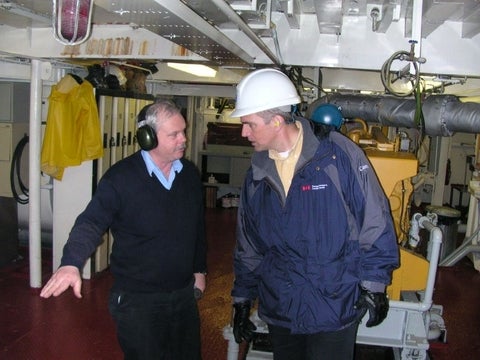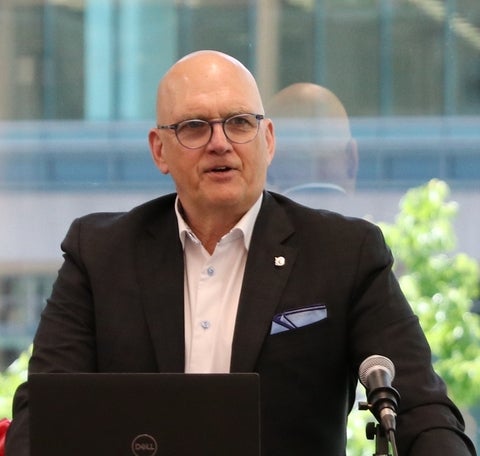Waterloo Engineering alum Gerard McDonald (BASc ‘82, civil and environmental engineering) recently retired as CEO of Engineers Canada, a national organization that regulates the practice of engineering and supports the profession’s growth in Canada.
In this Q&A, McDonald shares how his rewarding career unfolded and what he thinks makes a good engineer today.
What made you become a civil engineer?
Happenstance really. I didn’t know much about engineering when I was at high school, but I was good at physics and math so my calculus teacher, who just happened to be a civil engineer, encouraged me to consider engineering as a career. I also had an uncle who was a civil engineer so decided to give it a go. I applied to Waterloo Engineering and was fortunate to be accepted.
How did you get on at University?
The academic workload took some getting used to. Back then we were told to look left and look right as only one of us would make it to the end of the year. I love a challenge, so I made sure that person was me.
The co-op program was a fantastic experience. I got to work across the country, from a municipality job in Ottawa to the oil fields in Alberta and more in between. Co-op pushed me right out of my comfort zone which was daunting but helped me realize my strengths. It taught me how to relate to other people and become part of new communities, to find that common ground and engage with curiosity.
Studying at Waterloo was my first time away from home, but I made a lot of good friends in my residence and cohort which made the adjustment much easier. Many of those friendships continue today thanks to reunions, informal get-togethers and serendipitous interactions through work.
Where did life take you after graduation?
Not in the direction I had planned...
I was all ready to graduate with a job lined up at a company called Dome Petroleum which no longer exists. They’d flown me out to Calgary for interviews and put me up in nice hotels, so I was feeling smug. I was busy with my final exams when I got a call telling me not to bother making the move out west as the company was going under.
I like to say I was fired from my first job before I even started it.
After that reality check, I spent about two to three months looking for a job. The economy back then was not in great shape, much like today, and I sent out about 500 letters to various companies without much response.
I was eventually hired by the federal government in the Department of Transport. My plan at the time was to do the job for a couple of years and then work as a consultant earning big bucks. Fortunately, my career once again did not go in the direction I’d planned, and I stayed with the federal government for 31 great years. I then led Professional Engineers Ontario (PEO) for four years before stepping into the role of CEO at Engineers Canada which I held for six years.
An unexpected but satisfying career in the public sector — any highlights?
Many highlights but what comes to mind is the respect I gained for public sector workers. I was always amazed by my colleagues and how their professionalism contributed to society. My career gave me a greater appreciation for how government works, how rules and regulations are made and how they help shape the public good.
How would you define the value of an engineering degree?
An engineering degree is worth the hard work, and I know the academic expectations have ramped up since my time. The students and graduates I met during my time at PEO and Engineers Canada blew me away with their focus, maturity and well-roundedness.
Engineers are trained to be problem-solvers who work to improve society. Which means an engineering degree is a strong foundation for many different types of work. My degree taught me methodologies that I used throughout my career to approach all sorts of business questions and challenges. And I see engineering students today getting their degrees and moving into other professional sectors like law, medicine and finance which I think is great, it’s a compliment to the profession and puts the engineering way of thinking to broader use. This bodes well for all of us — the world needs a diverse body of problem-solvers more than ever before.

